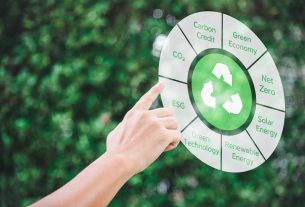ExxonMobil is set to expand its chemical recycling operations in North America with a significant investment of over $200 million in its facilities in Baytown and Beaumont, Texas. This expansion is part of the global petrochemical giant’s broader strategy to enhance its sustainability efforts and meet its ambitious recycling goals.
The expansion, which is expected to come online by 2026, will contribute to ExxonMobil’s goal of achieving a global plastic recycling capacity of 500,000 tons per year by 2027. This move reflects the company’s commitment to supporting the development of a circular economy for plastics, especially as demand for more sustainable recycling solutions grows.
Growing Demand for Chemical Recycling Solutions
ExxonMobil’s planned investment will add 175,000 tons per year of chemical recycling capacity across its Baytown and Beaumont plants, bringing the company’s total recycling capacity to 250,000 tons per year. This expansion follows ExxonMobil’s ongoing efforts to scale up Exxtend, its proprietary pyrolysis-based chemical recycling technology, which is capable of transforming plastic waste into valuable raw materials.
Karen McKee, President of ExxonMobil Product Solutions, emphasized the company’s dedication to providing sustainable solutions. “We are solutions providers, and this multimillion-dollar investment will enhance our ability to convert hard-to-recycle plastics into raw materials that produce valuable new products,” McKee said.
ExxonMobil’s investment is particularly significant as it builds on the success of its Baytown facility, which, since its opening in 2022, has already become one of the largest chemical recycling plants in North America, processing more than 35,000 tons of plastic scrap as of late 2024.
Strengthening the Circular Economy for Plastics
The technology deployed at Baytown has been instrumental in helping ExxonMobil scale its chemical recycling efforts. This success has provided the company with the confidence to expand its capacity, aiming for a total of 500,000 tons per year by 2027. The company’s approach to recycling is more than just a technical solution—it’s part of a broader movement toward a circular economy for plastics, in which discarded plastic is recycled and repurposed into new products, reducing reliance on virgin plastic production.
ExxonMobil’s Exxtend technology, which uses pyrolysis to break down plastic waste, complements traditional mechanical recycling methods. It is particularly effective in processing hard-to-recycle plastics, such as multi-layer packaging and other plastic materials that cannot easily be processed through conventional recycling channels. The technology transforms these plastics into raw materials that can be used for a variety of products, including fuels, lubricants, high-performance chemicals, and plastics.
The company notes that this process helps close the loop on plastic waste, making it a vital component of efforts to reduce plastic pollution and improve waste management systems. With increasing demand for sustainable solutions, ExxonMobil is positioning itself as a key player in the global recycling market.
Expanding Recycling Efforts Globally
ExxonMobil’s commitment to recycling extends beyond its operations in the United States. The company is also developing additional chemical recycling projects at its refining and manufacturing sites across North America, Europe, and Asia. These efforts are all aimed at achieving the company’s goal of processing 500,000 tons of plastic scrap annually by 2027.
ExxonMobil’s global footprint and expanding chemical recycling capabilities are further bolstered by its partnership with Cyclyx, a New Hampshire-based company focused on improving the collection and sortation of plastic waste. Established in 2021, the joint venture aims to increase the efficiency of plastic scrap collection and to ensure that a broader range of plastics is processed into high-value products through ExxonMobil’s advanced recycling technologies.
Addressing Concerns and Regulatory Scrutiny
While ExxonMobil’s chemical recycling efforts have been lauded for their innovation, they have also been subject to scrutiny. Pyrolysis, the core technology behind Exxtend, has faced challenges related to its environmental and economic effectiveness. Critics have questioned whether the process can meet its sustainability claims, particularly regarding emissions and the energy required to operate pyrolysis plants.
Moreover, ExxonMobil and Cyclyx have been the subject of investigative reports that assess the companies’ progress in meeting their targets to convert mixed, discarded plastic into new products. While chemical recycling offers promising solutions for plastics that are difficult to recycle mechanically, the long-term scalability and impact of pyrolysis-based technologies remain a topic of debate within the sustainability community.
The Future of Plastic Recycling and ExxonMobil’s Role
Despite the challenges and criticisms, ExxonMobil’s continued investment in chemical recycling underscores its belief in the potential of pyrolysis technology and its role in creating a more sustainable future for plastics. The company’s expanding capacity and ongoing development of new recycling projects signal a growing commitment to addressing the global plastic waste crisis.
As demand for recycled plastics continues to rise—particularly in sectors such as food-contact packaging, pet food, and consumer goods—ExxonMobil’s leadership in the chemical recycling space will likely be key in shaping the future of the industry. By 2027, the company expects its expanded chemical recycling operations to play a significant role in reducing plastic waste and contributing to a circular economy.
References:
- ExxonMobil’s press release on its chemical recycling expansion
- “The Future of Plastic Recycling: ExxonMobil’s Role in Chemical Recycling,” Sustainable Plastics Report, 2024
- Cyclyx joint venture press release, 2021
- Investigative report on pyrolysis technology, Environmental Sustainability Journal, 2024

